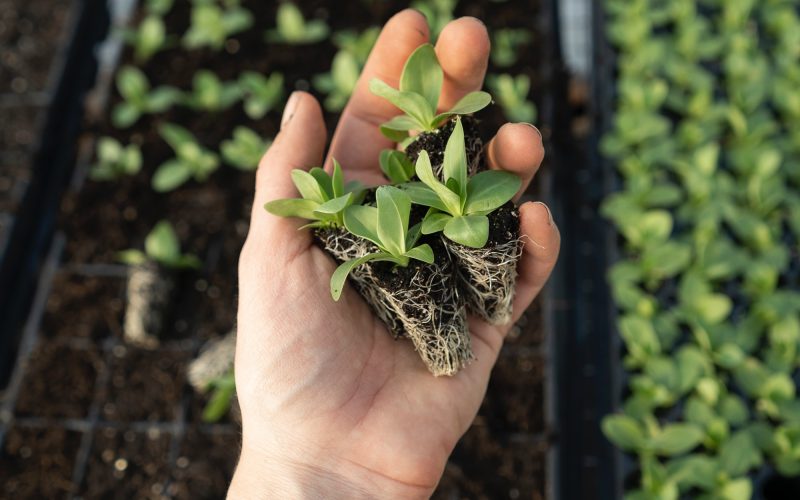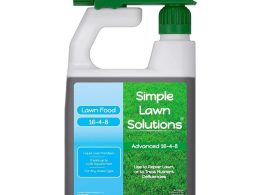Are you tired of throwing away your garden waste? What if we told you there’s a way to turn it into nutrient-rich soil for your plants? That’s right, composting is the solution! Not only does it reduce waste, but it also improves soil quality and helps plants thrive. In this blog post, we’ll guide you through the basics of composting – from what it is and its benefits to how to make a composter and what to compost in your garden. Get ready to transform your green space with these simple yet effective tips!
What is Composting?
Composting is the process of breaking down organic waste materials into nutrient-rich soil that can be used to fertilize plants. This natural method involves decomposing items such as food scraps, leaves, and grass clippings in a controlled environment.
The decomposition process requires oxygen, moisture, heat, and helpful bacteria to transform the organic matter into compost. When done correctly, it’s an effective way to reduce waste while improving the quality of your garden soil.
Composting can benefit both home gardeners and commercial farmers alike. By using compost instead of chemical fertilizers or pesticides, you can avoid harmful chemicals entering your produce or being released into the environment.
Composting is a simple yet powerful way to create a sustainable cycle for plants and help reduce our impact on the planet. With just a little bit of effort and knowledge about what to do with different types of waste material, anyone can start turning their garden waste into nutrient-rich soil for beautiful gardens!
The Benefits of Composting
Composting is a simple and effective way to reduce waste while improving the quality of your garden soil. There are numerous benefits associated with composting, both for the environment and for your wallet.
Firstly, composting reduces the amount of waste that ends up in landfills. When organic materials such as food scraps and yard waste decompose in landfills, they release methane gas which is a potent greenhouse gas that contributes to climate change. By composting these materials instead, you’re reducing their impact on the environment.
Composting also helps to improve soil health by adding important nutrients back into the earth. Compost contains a variety of essential plant nutrients like nitrogen, phosphorus, and potassium that help plants thrive. It also improves soil structure by increasing its ability to retain water and nutrients.
Another benefit of composting is that it can save you money in fertilizer costs over time. Instead of buying expensive synthetic fertilizers or additives for your garden, you can create nutrient-rich soil using items from around your home.
Composting is an easy way to get involved in sustainable living practices within your own household. It’s a small step towards reducing your carbon footprint while creating something beneficial for yourself at the same time!
How to Make a Composter
Making your own composter is a great way to recycle organic waste from your garden and kitchen. Not only is it an eco-friendly solution, but it also produces nutrient-rich soil for your plants. Here’s how you can make a simple composter at home.
Firstly, choose a suitable location for the composter in your garden. It should be placed on level ground with good drainage and partial shade. Then, gather materials such as wooden pallets or wire mesh to create the structure of the compost bin.
Next, assemble the structure by connecting all sides together securely using screws or zip ties. The size of the container depends on how much organic waste you produce regularly.
Once assembled, layer brown (dead leaves) and green materials (grass clippings) inside while adding water occasionally to keep them moist. You may also add fruit scraps, vegetable peels or coffee grounds into the mix.
Use a pitchfork or shovel to turn over the compost once every two weeks so that air flows through it evenly which will aid decomposition process.
By following these steps, you can easily make a homemade composter that will provide nutrient-rich soil for years to come!
What to compost in your garden
Composting is a great way to reduce waste and create nutrient-rich soil for your garden. But what exactly can you compost? It’s important to know which items are safe and effective for composting in order to avoid any potential issues with the process.
First of all, it’s important to note that there are two main types of materials that can be composted: green (nitrogen-rich) and brown (carbon-rich). Green materials include things like vegetable scraps, fruit peels, coffee grounds, and grass clippings. Brown materials include items like leaves, branches, sawdust, and cardboard.
When adding food scraps or other organic matter to your compost bin or pile, make sure they’re chopped up into small pieces. This will help them break down more quickly and evenly. Avoid putting meat or dairy products in your compost as they can attract pests and produce unpleasant odors.
Other items that should not be added to your compost include pet waste (which can contain harmful bacteria), weeds with mature seeds (which can spread throughout your garden), and anything treated with pesticides or herbicides.
By following these guidelines for what to add (and what not to add) to your compost pile, you’ll be well on your way towards creating healthy soil for a thriving garden!
What to do with leftover compost
In summary, composting is an excellent way to turn your garden waste into nutrient-rich soil. By following the steps outlined in this article, you can start composting at home today.
Remember that the benefits of composting go beyond just improving your garden’s health. Composting also helps reduce greenhouse gas emissions and diverts organic waste from landfills.
And what do you do with leftover compost? You have several options:
1. Use it as a natural fertilizer for your plants.
2. Add it to potted plants or indoor gardens.
3. Share it with friends and neighbors who are also into gardening.
4. Donate it to community gardens or local farms.
The possibilities are endless! So why not start composting today and reap all the rewards that come with this eco-friendly practice? Your garden (and the planet) will thank you!












